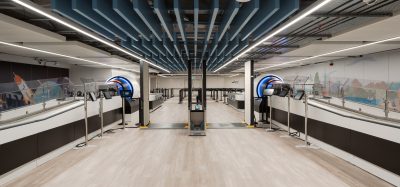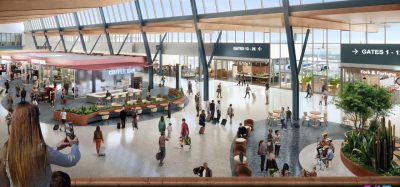Newcastle Airport: A case study in enabling regional transformation
- Like
- Digg
- Del
- Tumblr
- VKontakte
- Buffer
- Love This
- Odnoklassniki
- Meneame
- Blogger
- Amazon
- Yahoo Mail
- Gmail
- AOL
- Newsvine
- HackerNews
- Evernote
- MySpace
- Mail.ru
- Viadeo
- Line
- Comments
- Yummly
- SMS
- Viber
- Telegram
- Subscribe
- Skype
- Facebook Messenger
- Kakao
- LiveJournal
- Yammer
- Edgar
- Fintel
- Mix
- Instapaper
- Copy Link
Posted: 9 August 2023 | Samantha Martin-Williams | No comments yet
Samantha Martin-Williams, Deputy Chair of Newcastle Airport Ltd, writes exclusively for International Airport Review on how the airport is working to diversify and become more sustainable to secure its place in the future.
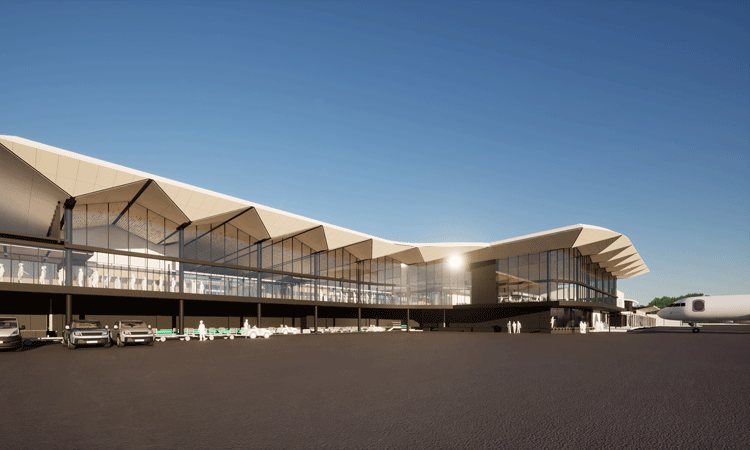

Newcastle in New South Wales, Australia, is the sixth biggest city in the country. It is the largest economy outside of the capital cities and has a strong heritage of being the industrial heart of the nation. The massive coal mines, steel works, and power plants of the Hunter region that built this great part of the world are all confronted by their contribution to climate change, but in classic Novacastrian style, all are willing to roll up their sleeves and do whatever needs to be done to transition to a more sustainable future.
In this dynamic and uncertain time for our region with many challenges to overcome, Newcastle Airport has emerged as a leader and enabler in transforming the region. Recently described as “the region’s little doer” by Phillip O’Neill, Professor of Geography, Tourism and Planning with Western Sydney University, the airport is strongly committed to an agenda of transformation and growth. Committed to the purpose of delivering the airport the region deserves, as what the region is changes so too must the airport. But more than that, Newcastle Airport is embracing opportunities to lead the way.
Diversifying our portfolio projects
The driving aspiration of the transformation of Newcastle Airport is a return to international travel. Like all airports, COVID-19 hit us hard, and we lost our previous international flights. Newcastle Airport team responded with a commitment to go bigger and better rather than just settle as a domestic airport. We managed to secure $122 million (AUD) in Australian Government funding to upgrade the runway and enable regular Code E aircraft flights, construct a new international terminal, and significantly enhance both passenger experience and the capacity of Newcastle Airport, connecting the Hunter region to the world. Our airlines are committed to working with us on our vision, with advanced negotiations being made to resume international routes in 2024.
We got a sharp reminder from the pandemic of the importance of a diversified portfolio, so we are leaning in to build a defence and aerospace business park next to the airport. This offers the unusual advantage of direct runway access for businesses that need it. The Astra Aerolab project is full steam ahead, with the enabling works for Stage 1 completed, the first buildings in the development approval process, and negotiations for the construction of a number of bespoke facilities well underway. The team also managed to secure a $240 million debt facility with the Commonwealth Bank to make the diversification and growth plans a reality.
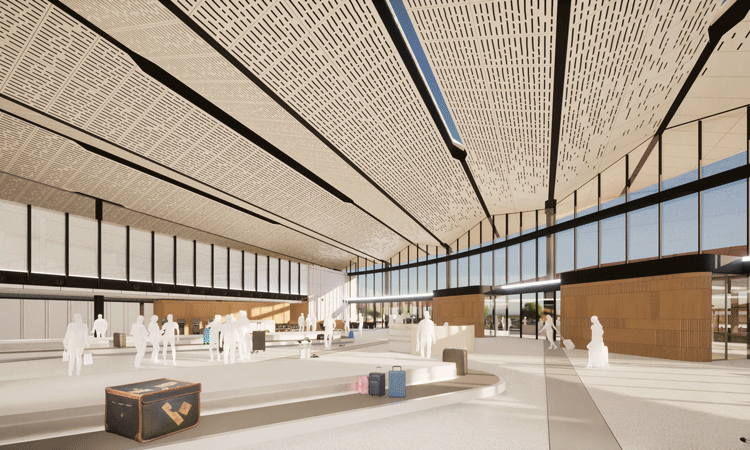

Credit: Newcastle Airport Ltd
Our pledge to sustainability
In the context of the Hunter Region transitioning to sustainability, it was not enough for Newcastle Airport to just focus on growth and economic stimulation. We knew we had to make the shift in both policy and practice to be as carbon neutral as possible. And again, the Newcastle Airport team embraced the opportunity for transformation with gusto, weaving sustainable practices into the new construction and driving change across the business.
All of the new construction, both for the airport terminal expansion and the Astra Aerolab business park, will be built to the 5 Star Green Star standard through the Green Building Council of Australia. We are rapidly working to increase our onsite renewable power generation as part of the transformation of the airport and already have the capacity for 34% of the airport’s power to be generated through two large banks of solar panels. As we transition our own fleet to electric vehicles (EVs), we also support our customers and contractors to do so through EV charging stations in the car parks, and convenient and unmetered access to electricity on ramp where ground handlers can charge their equipment.
As we return to international flight operations in 2024, we are partnering with our airlines and passengers to reduce and offset the carbon cost wherever possible. We’re working on the potential and opportunities to convert to sustainable aviation fuel. We’re collaborating with our food retailers in the terminal to transition them away from gas. Also, we’re investigating an airport led passenger offset programme that would empower passengers the change to offset their flight via QR codes at gate lounges.
And we’re going to keep working.
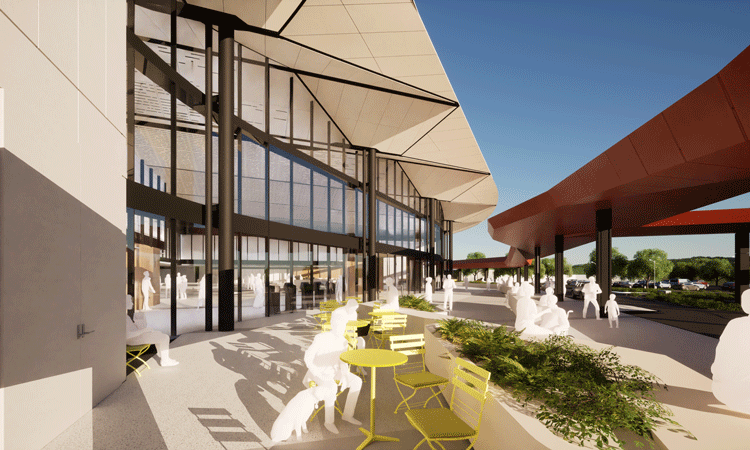

Credit: Newcastle Airport Ltd
Recognised for our efforts
Our efforts on sustainability have been acknowledged globally, with Newcastle Airport achieving Level 4 in the Airport Carbon Accreditation Programme run by Airports Council International. This is the only institutionally endorsed, carbon management certification standard for airports worldwide, and recognises airports’ commitment to reducing their carbon footprint. Of the 508 airports participating globally, we are ranked 61. We are only the second airport in Australia to reach Level 4 – no airports in Australia have a higher accreditation – a huge achievement for us.
The Newcastle Airport team has always had bigger ambitions. We have a long way to go in our journey as the Hunter Region continues its enormous structural transformation, so we need to keep reacting and adapting to fulfill our mission of being the airport the region deserves.
Whether it be in adding new routes, improving passenger experience, or our commitment to be more environmentally and economically sustainable, Newcastle Airport will continue to lead the way to achieve the transformation of the times.


A regional innovation and economic growth champion, Sam is a professional director with twenty years’ experience and is passionate about creating value through human capital, emerging technologies and risk governance.
She is the Deputy Chair of Newcastle Airport Ltd and Greater Newcastle Aerotropolis Ltd. Sam is the vice-chair of the Supply Chain and Logistics Association of Australia (SCLAA).
Sam is a former Businesswoman of the Year, a Fellow of the Australian Institute of Company Directors, a conjoint academic at the University of Newcastle, Australia and a thought leader for Forbes, America’s leading business magazine.
Sam is currently a non-executive director of NGM Group Australia, one of Australia’s largest customer-owned banks where she chairs People, Culture and Remuneration Committee.
Sam has degrees in Law, Industrial Relations and Business, having also completed executive education at MIT Sloan, Harvard Business School and INSEAD.
Related topics
Airport development, Emissions, Passenger experience and seamless travel, Sustainability, Sustainable Aviation Fuel (SAF), Sustainable development




